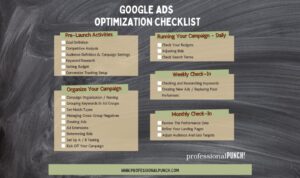Search Engine Optimization (SEO) is the practice of optimizing your website to increase the quantity and quality of traffic via organic search. Tracking these metrics is the best way to measure progress and improve website performance. This creates more clients, hits, or dollars, whichever your organization is trying to achieve. But how do you measure SEO? Here are some basic terms that will help you learn.
 How Do You Measure SEO?
How Do You Measure SEO?
The main goal of measuring and improving SEO on your website is to improve user interactions. This is to:
- Create awareness of your offerings
- Increase sales
- Establish brand loyalty
By measuring your success in these categories, you’ll be able to adjust your Return on Investment (ROI) for the greatest impact.
A list of standard Key Performance Indicators (KPIs), or ways to measure your ROI, are provided below.
Organic Search Traffic
The term “organic search traffic” refers to website visitors that land on your website by clicking on an unpaid (“organic”) search result from their search. This can be on Google, Bing, Yahoo, or another search engine. To find your overall organic search traffic, sign in to Google Analytics and navigate to Acquisition > All Traffic > Channels > Organic Search.
Goal Conversions from Organic Search Traffic
A “goal conversion” takes place when your visitors complete a specific action you are tracking. For example: make a purchase, fill out and submit a lead generation form, or sign up for your email newsletter. To find your goal conversions from organic search traffic, sign into Google Analytics and navigate to Acquisition > All Traffic > Channels > Organic Search.
Engagement from Organic Search Traffic
Engagement from organic search traffic can be measured in a variety of ways. This is usually analyzed using a few different engagement metrics.
- Bounce Rate–The percentage of single-page sessions in which there was no navigational interaction with the landing page before ending a session.
- Pages / Session (Average Page Depth)–The average number of pages viewed during a visitor session. Repeated views of a single page are counted.
- Average Session Duration–The average length of time users spend on your website during their session visits.
To find your engagement metrics for organic search, sign into Google Analytics and navigate to Acquisition > All Traffic > Channels > Organic Search.
Google Search Impressions
“Google search impressions” refers to the number of times any URL from your website appeared in Google search results viewed by a user. Please note that this metric does not include paid Google Ads search impressions, just organic search. Google search impressions can be found in two spots. One is in Google Search Console. The other is in Google Analytics (if Google Search Console has been linked) by visiting Acquisition > Search Console > Queries.
Google Search Clicks
The number of clicks on your website URLs from a Google Search results page. This does not including clicks on paid Google Ads displayed within Google Search results pages. Google search clicks can be found either in Google Search Console or in Google Analytics (if Google Search Console has been linked) by visiting Acquisition > Search Console > Queries.

Google Search Click-Through Rate (CTR)
The “Google search click-through rate” (CTR) is the percentage of searchers that clicked on an organic search engine results for your website within Google search results. This is calculated as clicks /impressions x 100.
CTR is largely based on ranking position, but is also influenced by a result’s title tag, description, URL, and presence of rich snippets. If you’re seeing Google search impressions but not receiving any Google search clicks, this is an indicator to further refine the language in your meta title and meta description. These make up your search result listing on search engine result pages (SERPs).
Google Search Queries
“Google search queries” is the total number and content of search queries your website was displayed for within Google Organic Search results. This metric can reveal the growth and variety of search queries your website is being found for on Google over time. The Google search queries can be found within Google Search Console or in Google Analytics (if Google Search Console has been linked) by visiting Acquisition > Search Console > Queries.
Keyword Ranking
“Keyword ranking” refers to a specific web page’s position within search results for a particular keyword search query. One webpage can rank for several relevant search keywords and phrases. The keyword ranking can be found either in Google Search Console or in Google Analytics (if Google Search Console has been linked) by visiting Acquisition > Search Console > Queries. In addition to Google Search Console or Google Analytics, other services can be used to track keyword ranking over time.
Backlinks
“Backlinks” are links from outside domains that link to web pages on your domain. It’s common for referring domains to link back to your content if it is relevant, authoritative, or useful in some way to their own domain. In an ideal world, that’s how backlinks are accumulated—unique content that other websites want to be associated with. Generally speaking, backlinks are considered to be a vote of confidence for the content that’s being linked to on your domain from outside sources.
Domain Authority (DA)
“Domain Authority” (DA) is a search engine ranking score developed by Moz. This predicts how well a website will rank on search engine result pages (SERPs). A Domain Authority score ranges from 1 to 100, with higher scores corresponding to a greater ability to rank. The Domain Authority can be used when comparing websites or tracking the ranking strength of a website over time.
DA is not a metric used by Google in determining search rankings and has no effect on the SERPs. It is difficult to influence directly. DA is made up of an aggregate of metrics and link data that have an impact on the authority score. This was done intentionally; this metric is meant to approximate how competitive a site is in Google search results.
Page Authority (PA)
“Page Authority” (PA) is a score developed by Moz that predicts how well a specific page will rank on search engine result pages (SERPs). The Page Authority scores within a range from 1 to 100. Higher scores correspond to a greater ability to rank. Like Domain Authority, Page Authority is a holistic score and difficult to influence directly, as PA is made up of an aggregate of metrics that each have an impact.

Questions About How to Measure Progress with SEO?
You started by asking “how do you measure SEO?”. We hope this helps answer a few questions about measuring SEO progress. This list of KPIs should help, but if you have any questions or would like a comprehensive 3-step SEO audit for your website, please get in touch today!
Our goal at Professional Punch is to help you achieve the results you’re looking for. Plenty of people say they can boost your bottom line, but we think long term. That means we empower our clients, helping you learn the basics and training your staff. Whether your goal is improving a key area of your website or designing optimized landing pages for long-term success, we can help with every step along the way.






